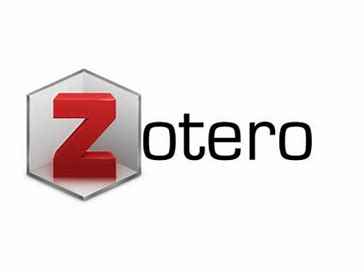The Characteristics of an Ideal Country: Perspectives from Bintu Syaṭi's Exegesis
Ciri-Ciri Negara Ideal: Perspektif Tafsir Bintu Syaṭi
DOI:
https://doi.org/10.28918/aqwal.v5i1.7193Keywords:
Ideal Country, Tafsir, Bintu Syaṭi`, Female MufassirAbstract
Background and Objectives: The concept of the ideal state in Islamic political science is often analyzed from the perspective of male mufassirs, while women's views are rarely considered. This study explores the characteristics of the ideal state according to Bintu Shafi'. The female perspective is considered to make a significant and unique contribution to understanding the concept of the ideal state in Islam. Methodology: This research utilizes a qualitative method with a literature review approach, using al-Tafsir al-Bayani li al-Quran al-Karim as the primary source and other relevant references as secondary sources. Data were collected through documentation techniques by focusing on related keywords such as state and Bintu Shaṭi', as well as relevant Qur'anic verses. The analysis was done thematically, especially on Surah Al-Balad.
Main Findings: The ideal state includes three main elements: security, food security and leadership quality. The state must be able to provide security for all citizens, especially women, maintain food security, and be led by leaders who are honest, trustworthy, transparent, and intelligent like the Prophet Muhammad. This research contributes to enriching the literature on the concept of the ideal state in Islam with a more inclusive and diverse perspective, and emphasizes the importance of including women's perspectives in the study of Qur'anic interpretation and the concept of the state. Conclusion: the perspectives of women, such as Bintu Shafi', provide valuable insights into understanding the concept of the ideal state in Islam. The ideal state pays attention to security, food security, and the quality of leadership.
Downloads
References
’Abdurrahmān, ‘Āisyah. (1962). Al-Tafsīr Al-Bayānī Li Al-Qur’ān Al-Karīm. Dār Al-Ma‘Ārif.
Ahmad Muzakki. (2023). PEMBENTUKAN PEMERINTAHAN ISLAM ANTARA WASAIL DAN MAQOSID. Aqwal: Journal of Qur’an and Hadis Studies, 4(2), 157–168. https://doi.org/10.28918/aqwal.v4i2.1379
Ahmed, S., & Hossain, M. (2019). Sustainable Agriculture in Arid Regions: Innovations and Practices. Journal of Sustainable Agriculture, 34(2), 43. https://doi.org/10.1080/10440046.2019.1577712
al-Halabi, A. Y. (1994). al-Durr al-Mashun fi ‘Ulum al-Kitab al-Maknun, vol. 11 (Vol. 11). Dar al-Qalam.
Alawiyah, T. (2016). Moral values in leadership: Insights from Quranic stories. Journal of Islamic Ethics, 1(1), 12–27.
Anwar, A. H. (2019). Food security in Islamic perspective. Journal of Islamic Studies, 5(2), 101–117.
Aziz, A. (2018). The significance of leadership traits in achieving good governance. Islamic Management Studies, 3(1), 34–49.
Brown, T., & Green, R. (2016). Regenerative Agriculture: Principles and Practices. Agricultural Systems, 58(1), 120. https://doi.org/10.1016/j.agsy.2016.04.005
Chaireni, R., Agustanto, D., Wahyu, R. A., & Nainggolan, P. (2020). KETAHANAN PANGAN BERKELANJUTAN. 2.
Clark, K., & Miller, D. (2018). Government Policies and Agricultural Innovation. Policy Studies Journal, 46(3), 211. https://doi.org/10.1111/psj.12235
Dahlan, M. (2018). NABI MUHAMMAD SAW. (Pemimpin Agama dan Kepala Pemerintahan). Rihlah Jurnal Sejarah dan Kebudayaan, 6(2), 184. https://doi.org/10.24252/rihlah.v6i2.6912
Faradits, A. (2022). Studi Kritis Atas “Al-Tafsīr Al-Bayāni Li Al-Qur’ān Al-Karīm“ Karya ‘Āisyah ‘Abdurrahmān Bintu Syāti’ (W. 1998 M.). At-Tahfidz: Jurnal Ilmu Al-Qur’an Dan Tafsir, 4(1), 57–73. https://doi.org/10.53649/at-tahfidz.v4i1.199
Frontiers. (2024). End Overfishing and Increase the Resilience of the Ocean to Climate Change. https://www.frontiersin.org
Ghazali, M. (2020). Ensuring security and stability in an Islamic state: A Quranic perspective. Middle Eastern Studies, 56(4), 321–338.
Gufron, U. (n.d.). Concept of Good Doverment in the View of Al-Ghazali. Jurnal Bimas Islam.
Hakim, A. R. (2022). , Stabilitas Negara Di Indonesia Menurut Al-Qur’an. PTIQ Press.
Hamza, M. A. (2017). Concept of state and leadership in the Quran. Journal of Islamic Civilization, 10(3), 43–56.
Hanizar, dkk. (2021). Negara Ideal Menurut Surah Al-Baqarah Ayat 126. Jurnal El-Qanuniy: Jurnal Ilmu-Ilmu Kesyariahan Dan Pranata Sosial, 7(1).
Ibrahim, S. (2019). Agricultural sustainability and food security in Islamic context. Journal of Agricultural Studies, 4(1), 22–35.
Jones, P., & Arkin, T. (2019). Transforming Desert Agriculture: Case Studies from the Middle East. Journal of Environmental Management, 42(1), 68. https://doi.org/10.1016/j.jenvman.2019.01.012
Karim, M. (2021). The role of ethical leadership in Muslim communities. Islamic Ethics Review, 8(2), 98–110.
Khan, A., & Rahman, S. (2018). Sustainable Resource Management in Agriculture. Journal of Environmental Science and Policy, 27(4), 135. https://doi.org/10.1016/j.envsci.2018.04.010
Liddini, L., Prabandani, A. S. W., & Nadhiroh, W. (2022). The Concept of Justice in The Qur’an and Hadith (Study of Quraish Shihab’s Interpretation QS. An-Nisa: 135 on Youtube). AQWAL Journal of Qur’an and Hadis Studies, 3(2), Article 2. https://doi.org/10.28918/aqwal.v3i2.6145
Lufaefi, L. (2020). MODEL NEGARA DALAM ISLAM: TINJAUAN TAFSĪR MAQĀṢIDĪ. Ushuluna: Jurnal Ilmu Ushuluddin, 1(2), 150–165. https://doi.org/10.15408/ushuluna.v1i2.15350
Mahmuda. (2017). KONSEP NEGARA IDEAL/UTAMA (al-Madīnah al-Fāḍilah) MENURUT AL-FARABI. PASCASARJANA UNIVERSITAS ISLAM NEGERI SUMATERA UTARA MEDAN.
Mufid, A. (2020). Konsep Ideal dalam Perspektif Al-Quran. An-Nawa Jurnal Studi Islam, 2(1).
Mulia, M. (2001). Negara Islam: Pemikiran Politik Husain Haikal. Paramadina.
Mustaqim, A. (2010a). Metodologi Penelitian Tafsir. Penerbit Idea.
Mustaqim, A. (2010b). Metodologi Penelitian Tafsir (Yogyakarta: Penerbit Idea, 2010. Penerbit Idea.
Patel, R., & Kumar, S. (2021). Innovations in Irrigation for Sustainable Agriculture. Journal of Irrigation Science, 36(2), 55. https://doi.org/10.1007/s00271-021-00738-8
Pribadi, R. (2017). Memupuk Kesuburan Menebar Kemakmuran. Gramedia.
Rahman, F. (2016). The importance of security in Islamic governance. Journal of Islamic Governance, 2(2), 18–28.
Sakdiah, S. (2016). Karakteristik Kepemimpinan dalam Islam (Kajian Historis Filosofis) Sifat-sifat Rasulullah. Jurnal Al-Bayan, Vol.22 No.33, 39.
Shafiq, A. (2020). Moral and ethical dimensions of leadership in Islam. Journal of Islamic Management, 7(1), 67–80.
Sihite, R. (2003). KEKERASAN NEGARA TERHADAP PEREMPUAN. 3.
Simbolon, H. M., Rasyid, A., & Hutagalung, M. W. R. (2021). NEGARA IDEAL MENURUT SURAH AL-BAQARAH AYAT 126. 7.
Singh, N., & Gupta, M. (2017). Efficient Water Use in Agriculture. Water Resources Management Journal, 29(3), 99. https://doi.org/10.1007/s11269-017-1719-3
Smith, J., & O’Neill, C. (2020). Ecological Approaches to Soil Fertility. Journal of Agricultural Science, 33(5), 247. https://doi.org/10.1017/S0021859620000210
Umam, K., & dkk. (2019). Menyoal Peran Negara dan Masyarakat dalam Melindungi Perempuan dan Anak. Pusat Kajian Wanita dan Gender Universitas Indonesia.
Wathan, N. (2019). Islamic Education Leadership Criteria Acoording to Al-Ghazali. Islam Universalia-International Journal of Islamic Studies and Social Sciences, Vol.1 No.1, 53.
Williams, B., & Taylor, L. (2020). Policy and Technological Advances in Sustainable Agriculture. Agriculture and Human Values, 37(2), 187. https://doi.org/10.1007/s10460-019-10014-7
World Bank. (2024). Rising Food Insecurity. https://www.worldbank.org
Yusuf, H. (2018). Food security strategies in the Middle East: An Islamic perspective. Journal of Middle Eastern Studies, 44(3), 197–210.
Zereyesus, Y. A., Cardell, L., Ajewole, K., Farris, J., Johnson, M. E., Kee, J., Valdes, C., & Zeng, W. (2023). International food security assessment, 2023-2033 (GFA-34). U.S. Department of Agriculture, Economic Research Service. https://dx.doi.org/10.32747/2023.8134166.ers
Downloads
Published
How to Cite
Issue
Section
License
Copyright (c) 2024 Novi Laila Athiyah, Aghnin Khulqi

This work is licensed under a Creative Commons Attribution-ShareAlike 4.0 International License.








